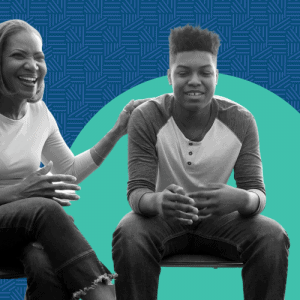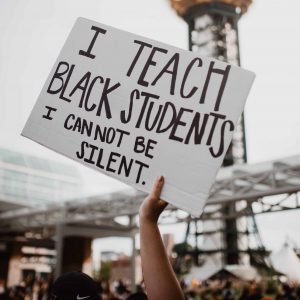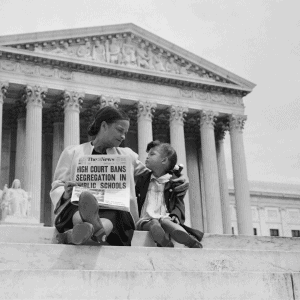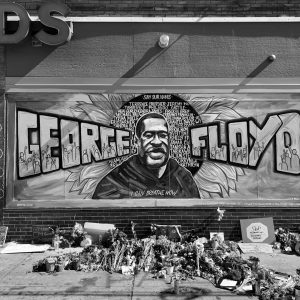Talking to Kids About Racism
11/29/2021
When the news breaks our children’s spirits, how will we fuel their hope?
When I picked up my daughter from school, the first thing she asked was, “Did you hear the news?” I didn’t need her to clarify. I knew she was talking about a Wisconsin jury’s decision earlier in the day to acquit Kyle Rittenhouse of homicide charges despite evidence that he killed two people who were protesting for Black lives last year.
The look on her face was beyond baffled. It wasn’t confused. It was broken. My daughter looked broken. And I’ve got to be real: I’m sick of seeing my 9-year-old child realize that the world she’s still discovering with so much awe and wonder will often break her heart.
Our Society often harms
As a Black mother and lifelong racial justice warrior, I’ve tried to prepare for moments like this. Making a better world for all people drives me each day. Before shifting my career to advocate for education equity earlier this year, I worked to strengthen the Lawyers’ Committee for Civil Rights, The Leadership Conference for Civil and Human Rights, and the NAACP. I know what we’re up against. But life and hurt still hit you in real time.
With me as her mother, it was inevitable that my daughter would grow up learning that history books are written by the winners. It was inevitable that she’d grow up to watch Pride & Prejudice and ask where the Black people are. It was inevitable that she’d learn about racism. But learning about it in theory isn’t the same as seeing its ugliness in real life. Every time society shows my daughter the truth of Mos Def’s line in Thieves in the Night, “The length of Black life is treated with short worth,” I’m left enraged.
Talking About Race Isn’t Optional
When Derrick Chauvin was found guilty of murdering George Floyd, my then 8 year-old daughter said, “But Mr. Floyd is still dead.” Y’all, my heart collapsed. And now she asked, “How could that man kill people and not be guilty?” What could I tell her? What do you say?
In my home, you tell the truth. You anchor in facts. And you talk about how yesterday’s history impacts today’s social studies. So, I explained that unfortunately this verdict was a win for people who support ideas that we don’t believe in. This time they won. But tomorrow and tomorrow and tomorrow, we will win.
We have allies who choose to stand with us, using their privilege to give voice to the injustice that we all see. I told her I saw peaceful marchers that evening in Kenosha who were people of all races, people who know that Jacob Blake’s life matters. I told her that his name and those of Joseph Rosenbaum, Anthony Huber, and Gaige Grosskreutz need to be the names we remember. Those are the names that drive me to keep fighting for racial equity.
Lean into Your Community
If you too struggle to find words, know that being speechless is normal. It’s okay to acknowledge the hurt and the confusion, and it’s okay to be angry. But don’t stay there. Our children’s lives, our collective joy, and our existence are too important to be driven by anger.
I’m thankful for the community of brave educators I see across the country who are working every day with inadequate support to prepare our kids for the better world of our wildest dreams. In the face of efforts to silence their voices and deny our children the truth, they are pursuing real opportunity and interrogating their own identities in ways our larger society still resists. I also feel for the too few educators of color in our classrooms who must deal with their own pain in silence while being a support system for students in hard moments. We will continue to share the load with them and build toward communities that see the humanity in everyone.
Lead with Love
Hard moments will reoccur in the short term. But my hope going forward is that we’ll continue to anchor ourselves in our love for our neighbors. No one can fix our greatest challenges alone; our futures are intricately connected. When all is said and done, that’s the lesson I want my kid to learn.
If by chance you’re looking for resources, I like the following:
- Talking to Kids About Racism and Violence
- Ways to Emotionally Support Your Teen in Responding to Racism
- Talking to Children About Violence: Tips for Parents and Teachers
I’m thankful to and for each of you and what we are building together. Be well.







